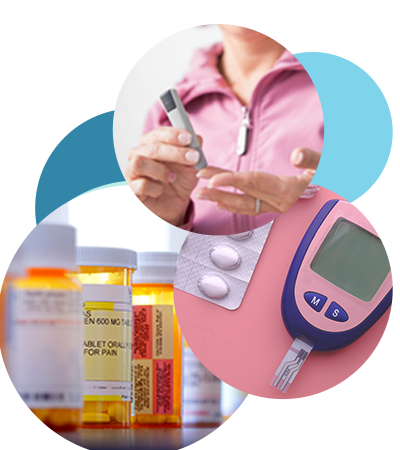Diabetes Control Checklist
Managing your diabetes can get complicated. There are daily tasks you need to do to stay healthy. Plus, you need to see your healthcare provider regularly for tests and care. Your healthcare provider is your partner in controlling your diabetes. Use this checklist as a guide to take control of your diabetes.
Visit your healthcare provider at least twice a year
You may need to see your healthcare provider more often if you have not yet reached your diabetes management goals that you and your healthcare provider set.
During your appointment:
- Get your blood pressure checked and have your feet checked for any cuts or blisters that will not heal.
- Make sure your labs are up to date – including A1c tests and blood or urine tests that check your kidney health.
- Ask if you need to check your blood pressure or blood sugar at home.
- Discuss whether you need to change or stop taking any of your medicines or add new ones.
- Statins are medicines that can lower your risk of heart attack and stroke by lowering cholesterol. Ask if you should take a statin medicine to help with your cholesterol.
- Get recommended vaccines (flu, pneumonia, COVID-19, TDaP and hepatitis B).
Take your medicines as discussed with your provider
- Stay organized to help make sure you take your medicines correctly.
- Call your pharmacy for refills a week before you need them. If you cannot make it to the pharmacy to pick up your medicines, ask about delivery options.
- Ask your healthcare provider or pharmacy for a 90-day supply of your medicine, including those prescribed for managing diabetes.
Check your feet every day for changes in skin and nails
- Look for cuts or blisters that will not heal.
Stay up-to-date with other provider visits
- Get your eyes checked every year for any signs of retinopathy (an eye condition that causes damage to blood vessels in the back of the eye).
- Visit your dentist every six months.
- Ask your healthcare provider if you should see other providers. They can help refer you to a diabetes educator, dietitian or mental health provider.
For more information on regular care needed to control your diabetes, visit the Centers for Disease Control (CDC) website.
